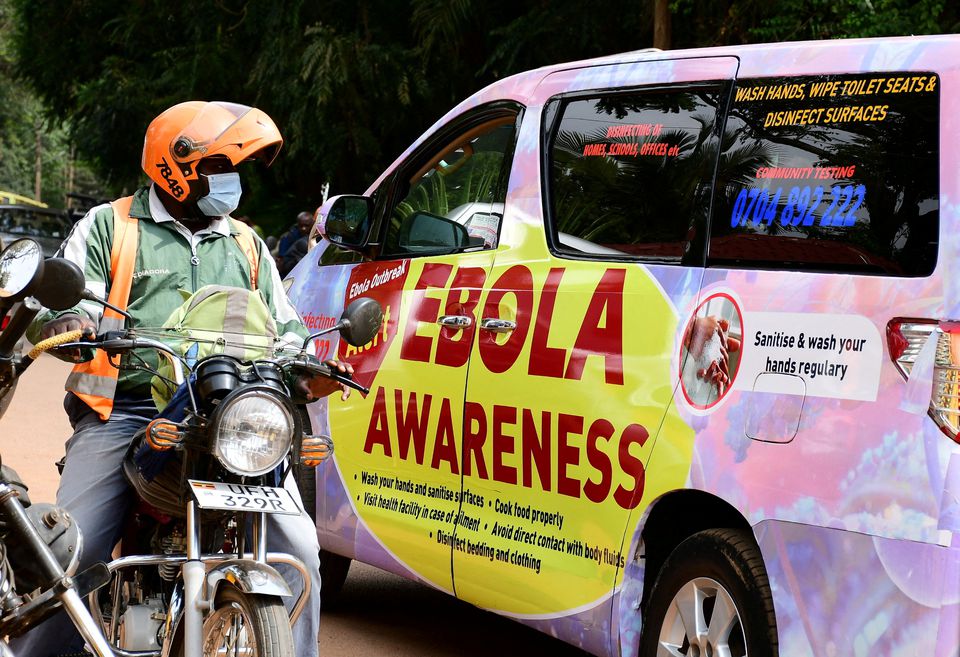

Jan 5 (Reuters) – Africa’s top public health body said on Thursday that the Ebola outbreak in Uganda was coming under control, as it had been 39 days since the last confirmed case of the virus had been reported in the country.
Officials first confirmed the outbreak in September and said it was the Sudan strain of the disease, for which there is no proven vaccine.
Last month Uganda discharged its last known Ebola patient from hospital and President Yoweri Museveni lifted all Ebola-related movement restrictions, reflecting progress curbing the spread of the virus.
The Africa CDC’s acting director, Ahmed Ogwell Ouma, told a briefing that if no new cases were reported in Uganda by Jan. 10 then the outbreak would be over.
He praised the Ugandan government’s excellent coordination of Ebola-containment measures, saying it had taken around 70 days to bring the outbreak under control with 142 confirmed cases and 55 deaths. Vaccine trials against the Sudan strain of Ebola were ongoing, Ouma added.
African health authorities have made a concerted effort to boost their readiness to respond to Ebola following a devastating outbreak of the Zaire strain of the disease in West Africa in 2014-2016 that killed 11,300 people, mostly in Guinea, Sierra Leone and Liberia.
Ebola causes vomiting, bleeding and diarrhoea and spreads via contact with bodily fluids of the infected. The virus can sometimes linger in the eyes, central nervous system and bodily fluids of survivors and flare up years later.
The World Health Organisation says a country needs to pass 42 days – twice the maximum incubation period – after the last confirmed case for it to be declared Ebola-free.
Reporting by Estelle Shirbon Editing by Alexander Winning, William Maclean